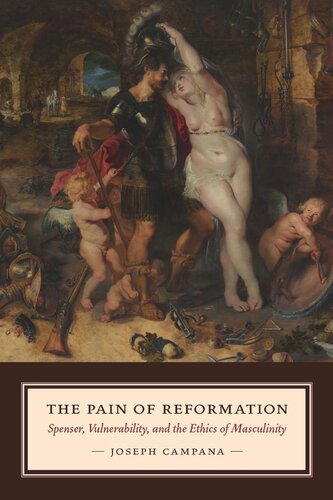

Most ebook files are in PDF format, so you can easily read them using various software such as Foxit Reader or directly on the Google Chrome browser.
Some ebook files are released by publishers in other formats such as .awz, .mobi, .epub, .fb2, etc. You may need to install specific software to read these formats on mobile/PC, such as Calibre.
Please read the tutorial at this link: https://ebookbell.com/faq
We offer FREE conversion to the popular formats you request; however, this may take some time. Therefore, right after payment, please email us, and we will try to provide the service as quickly as possible.
For some exceptional file formats or broken links (if any), please refrain from opening any disputes. Instead, email us first, and we will try to assist within a maximum of 6 hours.
EbookBell Team

0.0
0 reviewsThe Pain of Reformation argues that Edmund Spenser’s 1590 Faerie Queene represents an extended meditation on emerging notions of physical, social, and affective vulnerability in Renaissance England. Histories of violence, trauma, and injury have dominated literary studies, often obscuring vulnerability, or an openness to sensation, affect, and aesthetics that includes a wide range of pleasures and pains. This book approaches early modern sensations through the rubric of the vulnerable body, explores the emergence of notions of shared vulnerability, and illuminates a larger constellation of masculinity and ethics in post-Reformation England. Spenser’s era grappled with England’s precarious political position in a world tense with religious strife and fundamentally transformed by the doctrinal and cultural sea changes of the Reformation, which had serious implications for how masculinity, affect, and corporeality would be experienced and represented. Intimations of vulnerability often collided with the tropes of heroic poetry, producing a combination of defensiveness, anxiety, and shame. It has been easy to identify predictably violent formations of early modern masculinity but more difficult to see Renaissance literature as an exploration of vulnerability. The underside of representations of violence in Spenser’s poetry was a contemplation of the precarious lives of subjects in post-Reformation England. Spenser’s adoption of the allegory of Venus disarming Mars, understood in Renaissance Europe as an allegory of peace, indicates that The Faerie Queene is a heroic poem that militates against forms of violence and war that threatened to engulf Europe and devastate an England eager to militarize in response to perceived threats from within and without. In pursuing an analysis, disarmament, and redefinition of masculinity in response to a sense of shared vulnerability, Spenser’s poem reveals itself to be a vital archive of the way gender, violence, pleasure, and pain were understood.